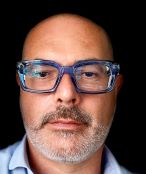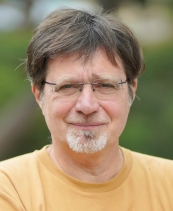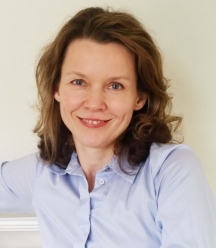
|
|
|
Keynote speakersAaron Ciechanover
Aaron Ciechanover was born in Haifa, Israel in 1947. He is currently a Distinguished Research Professor in the Faculty of medicine at the Technion - Israel Institute of Technology in Haifa, Israel. He received his M.Sc. (1971) and M.D. (1973) from the Hebrew University in Jerusalem. He then completed his national service (1973-1976) as military physician, and continued his studies to obtain a doctorate in biological sciences in the Faculty of Medicine in the Technion (D.Sc.; 1982). There, as a graduate student with Dr. Avram Hershko and in collaboration with Dr. Irwin A. Rose from the Fox Chase Cancer Center in Philadelphia, USA, they discovered that covalent attachment of ubiquitin to a target protein signals it for degradation. They deciphered the mechanism of conjugation, described the general proteolytic functions of the system, and proposed a model according to which this modification serves as a recognition signal for a specific downstream protease. As a post- doctoral fellow with Dr. Harvey Lodish at the M.I.T., he continued his studies on the ubiquitin system and made additional important discoveries. Along the years it has become clear that ubiquitin-mediated proteolysis plays major roles in numerous cellular processes, and aberrations in the system underlie the pathogenetic mechanisms of many diseases, among them certain malignancies and neurodegenerative disorders. Consequently, the system has become an important platform for drug development. Among the numerous prizes Ciechanover received are the 2000 Albert Lasker Award, the 2002 EMET Prize, the 2003 Israel Prize, and the 2004 Nobel Prize (Chemistry; shared with Drs. Hershko and Rose). Among many academies, Ciechanover is member of the Israeli National Academy of Sciences and Humanities, The European Molecular Biology Organization (EMBO), the American Academy of Arts and Sciences (Foreign Fellow), the American Philosophical Society, the National Academies of Sciences (NAS) and Medicine (NAM) of the USA (Foreign Associate), the Pontifical Academy of Sciences at the Vatican, the Chinese Academy of Sciences (CAS; Foreign Member), the Russian Academy of Sciences (Foreign Member), and the German Academy of Sciences (Leopoldina).
Nektarios Tavernarakis Nektarios Tavernarakis is Professor of Molecular Systems Biology at the Medical School of the University of Crete, in Heraklion, Greece. He is also the Chair of the Board of Directors at the Foundation for Research and Technology-Hellas (FORTH), and Research Director at the Institute of Molecular Biology and Biotechnology (IMBB) of FORTH, where he is heading the Neurogenetics and Ageing laboratory. He is the Founder and first Director of the Graduate Program on BioInformatics at the University of Crete. He has served as Chair of the European Institute of Innovation and Technology (EIT) Governing Board, as Vice President of the Scientific Council of the European Research Council (ERC), and as Director of IMBB. He is a member of the American Association for the Advancement of Science (AAAS), the European Molecular Biology Organization (EMBO), the German National Academy of Sciences (Leopoldina), Academia Europaea, the European Academy of Sciences (EurASc) and the Academy of Athens. His work focuses on the molecular mechanisms of necrotic cell death and neurodegeneration, the interplay between cellular metabolism and ageing, the mechanisms of sensory transduction and integration by the nervous system, and the development of novel genetic tools for biomedical research. He is the recipient of the EMBO Young Investigator award, the Alexander von Humboldt Foundation, Friedrich Wilhelm Bessel research award, the Helmholtz International Fellow Award, and two ERC Advanced Investigator Grants.
Rosa Barrio Rosa Barrio obtained her BSc in Biology from the Autonomous University of Madrid (UAM) and her PhD in Sciences from the same University, where she characterized the ubiquitin genes in Drosophila. She joined the laboratory of Prof. FC Kafatos at Harvard University (Cambridge, USA), IMBB (Greece), and EMBL (Germany) to study SALL transcription factors, which mutations contribute to hereditary human diseases such as Townes-Brocks Syndrome (TBS). In 2001, Dr. Barrio moved back to the CBMSO (Madrid, Spain) to explore the role of SALL factors in development. In 2004, she joined CIC bioGUNE, leading the Ubiquitin-likes and Development Lab. Her laboratory is focused on understanding protein homeostasis regulation, especially focusing on the Ubiquitin-like (UbL) family. The group develops technologies like BioE3, SUMO-ID, and BioUbL to identify UbL modified proteins, their interactors, and E3 ligase targets. The interests of the laboratory include the study of how disruptions in protein homeostasis contribute to rare diseases like TBS and others. Rosa Barrio (co)coordinated ITN European projects in the filed on UbLs (UPStream, UbiCODE), and COST Action PROTEOSTASIS. She is member of the Management Committee of ProteoCure.
Chris Scott Professor Chris Scott is Dean of Research, Faculty of Medicine, Health and Life Sciences, Queen’s University Belfast. Following a primary degree in Biochemistry he undertook a PhD and post-doctoral training at Queen’s in protease biochemistry. In 2001, Chris was one of the founding members of QUB spinout company Fusion Antibodies Ltd., before returning to Queen’s in 2003 to take up an academic position. Chris is internationally renowned for his work in cathepsin biology and development of antibody and nanomedicine-based therapies for the treatment of cancer and other conditions. Work in his laboratory is funded by agencies such as Medical Research Council, HSCNI, and various industrial sources such as AstraZeneca and Immunocore. He also held a Royal Society Industrial Fellowship with GSK from 2012-15, and won the Vice Chancellor’s Prize for Innovation in 2015 with his group’s work on developing a novel nanomedicine for the treatment of sepsis and other inflammatory conditions. Chris is scientific co-founder of Boston-based Aviceda Therapeutics Inc and AilseBio Ltd in the UK.
Giovanna Mallucci Professor Giovanna Mallucci is a Founding Principal Investigator at Altos Labs, Cambridge Institute of Science, Cambridge, UK. She was previously Center Director of the UK Dementia Research Institute and van Geest Professor of Clinical Neurosciences at the University of Cambridge. Her lab pioneered the understanding of the role of the Unfolded Protein Response (UPR) in neurodegenerative diseases and its therapeutic manipulation for neuroprotection, including discovering repurposable drugs now in clinical trials. Her interest in neuroprotection led to the discovery of ‘hibernation’ proteins in synapse regeneration that can be targeted therapeutically to prevent neurodegeneration. She is a Fellow of the Academy of Medical Sciences and recipient of the 2021 Potamkin Prize for Research in Pick’s, Alzheimer’s and Related Disorders. She is a practicing neurologist, specialized in dementia.
Elke Krüger Upon completion of my studies in Biology I get awarded with a PhD in microbiology by the University of Greifswald in 1996. The work of my PhD and early postdoc time essentially contributed to the understanding of the regulation and function of Clp proteases in Gram-positive bacteria and has broaden the concept of protein quality control in cellular fitness. As a microbiologist by training my interest in the immune response was awakened and I completely switched the field from the pathogen to the host. I successfully applied for a group leader position in 1999 to investigate the role of proteasome heterogeneity in cellular control and immune pathways at the Charité University Medicine in Berlin. In this topic I found my passion and major research interest up to now. In 2009 I was appointed as an Associate Professor at the Institute of Biochemsitry, Charité Berlin and tenured in 2014. My overarching research goal is to understand the molecular and cellular pathogenesis driven by proteasome impairment in cancer, neurodegeneration, and in rare genetically caused proteasompathies combining knowledge in biology of innate immune signaling with biochemistry of the ubiquitin proteasome system. At the intercrossing section of preclinical research and patient care we are able to translate basic knowledge from bench to bedside in national and international collaborations with >90 publications. In 2017 I was appointed as a full professor and director of the preclinical Institute of Medical Biochemistry and Molecular Biology at the University Medicine in Greifswald. As elected Vice Dean for promotion of young researchers in 2022 I am now able to transfer my knowledge and attract young talents for programs for future leaders in science.
Irit Sagi Prof. Irit Sagi joined the Faculty of Chemistry at the Weizmann Institute in 1998 and is the incumbent of the Maurizio Pontecorvo Professorial Chair. She served as Dean of the Feinberg Graduate School from 2014-2019, when she assumed the position of Vice President for Innovation and Technology Transfer and Chair of the Board of Directors of Yeda, the Institute’s commercialization arm. Under this capacity, Prof. Sagi established a new innovation ecosystem at the Weizmann Institute to support the translation and commercialization of fundamental research projects. In her lab in the Department of Immunology and Regenerative Biology, Prof. Sagi develops and applies unique, multidisciplinary, and biophysical approaches to investigate the molecular processes of tissue and extracellular remodeling. Merging real-time spectroscopic and molecular imaging approaches, she was the first to reveal the complex dynamic molecular nature of extracellular remodeling enzymes, including matrix metalloproteinases and lysyl oxidases (MMPs and LOX). These are a group of human enzymes linked to developmental biology, cancer, inflammation, fibrosis, and infectious diseases. Insights derived from these studies led her to design a new class of inhibitory antibodies that thwart the enzymes’ negative action. These prototype antibodies and biological inhibitors are currently being developed for clinical use for human inflammatory and cancer diseases. Prof. Sagi continues to focus her research efforts on novel integrated experimental tools tailored to decipher the extracellular matrix molecular remodeling code and molecular landscapes in healthy and diseased tissues. Specifically, she is using her biological inhibitors as molecular probes together with various omics to unravel new cellular and molecular pathways at the single-cell as well as at tissue levels. Recently, she demonstrated a novel use for proteases in promoting and increasing the rate of embryo implantation in mammals. This discovery led to her establishment of a company, NanoCell, which is developing this technology in livestock and humans. Born in Israel, Prof. Irit Sagi received a BSc in physical chemistry from American University (1988) and a PhD degree in biophysics/bioinorganics from Georgetown University (1992), both in Washington DC. She returned to Israel to perform postdoctoral research at the Weizmann Institute in the group of Prof. Ada Yonath, laureate of the 2009 Nobel Prize in Chemistry. Prof. Sagi continued her postdoctoral studies at the Max Planck Institute in Berlin before returning to the Weizmann Institute as faculty in 1998. In 2005-2006, she spent a sabbatical as a visiting professor at Harvard University and Novartis Research Institutes for BioMedical Research in Boston. Prof. Sagi has had more than 150 publications in peer-reviewed scientific journals and is the editor of two books. She received the Israel Chemical Society ADAMA prize in 2021, the Landau Prize of Mifal Hapais for Biochemistry in 2017, and the Juludan Prize for outstanding research projects in exact sciences and advanced medicinal technologies in 2013. In 2006, she was named ‘Inventor of the Year’ by Yeda. In 2003, she was awarded the Weizmann Institute Scientific Council Prize for Chemistry, and in 2000 she received the Jakubskind-Cymerman Research Prize. From 2009-2014 she served as President of the Israel Biophysical Society and is currently President of the Israel Matrix Biology Society. Prof. Sagi is a member of the International Board of Directors of Future Fund for promoting Israel-Germany relations, and a member of the UK Israel Science Council. She received an honorary doctorate from the Faculty of Chemistry at the University of Patras in Greece in 2022. Prof. Sagi was also featured on Forbes’ #powerwomen 2023 list.
Ioannis Charalampopoulos Ioannis Charalampopoulos is Professor of Pharmacology at the Medical School, University of Crete, Affiliated Researcher at the Institute of Molecular Biology and Biotechnology (IMBB), Foundation of Research and Technology Greece (FORTH) and co-founder of the spin-off company ReNeuroCell Therapeutics. He is an expert on Regenerative Pharmacology, and more specifically to neuropharmacology for neurodegenerative diseases, such as Alzheimer’s Disease. His research interests are ranging from neurotrophin receptors structure-function studies to development of novel ligands with specific effects on these receptors and their therapeutic potential on human and animal models of neurodegenerative diseases like Alzheimer’s Disease and Spinal Cord Injury. The aim of his work is to decipher the multiple signalling effects of these receptors and thus to design and test novel, synthetic analogs of their ligands with desired pharmacological properties, targeting adult neurogenesis and neuroprotection in mouse models of neurodegenerative diseases. Morever, by using human induced Pluripotent Stem Cell-derived neural 3D platforms, we resemble in vitro the human pathology of neurodegeneration and neuroinflammation, aiming to provide precise tools for drug screening as well as novel therapeutic approaches for cell implants. He is the author of 80 publications
Cleanthe Spanaki Cleanthe Spanaki is Associate Professor of Neurology at the University of Crete, School of Medicine. She holds an MD degree, an MSc in Bioethics, and a PhD in Neurogenetics. Her primary clinical expertise and research focus is on neurodegenerative diseases, particularly movement disorders. For the past 25 years, she has been leading the Movement Disorders Outpatient Clinic at the University Hospital of Heraklion in Crete, where over 700 patients are registered, and all available device-aided treatments are offered. Deep phenotyping of movement disorders using “multiomic” data and digital technologies are the focus of her clinical research interests. Additionally, her research aims to unravel the underlying pathophysiology of Parkinson disease and parkinsonian syndromes by investigating its genetic architecture on the island of Crete, exploring genotype-phenotype associations, and assessing the functional significance of novel mutations. At the translational level, she studies the role of a key enzyme involved in energy and glutamate metabolism and its contribution to neurodegeneration.
Luca Scorrano Luca Scorrano earned an MD and a PhD from the University of Padua, Italy. From 2000 to 2003, he was a HFSP postdoctoral fellow in Stan Korsmeyer’s lab at the Dana-Farber Cancer Institute, Harvard Medical School, Boston. In 2003, he was recruited by the Dulbecco-Telethon Institute as Assistant Scientist. In 2006, he became Full Professor at University of Geneva Medical School, Switzerland, until 2013 when he was named “Outstanding Recognition (Chiara fama)” Professor of Biochemistry at University of Padua. From 2014 to 2020, he was Scientific Director at Veneto Institute of Molecular Medicine. Luca discovered the cristae remodeling pathway, foundational to mitochondrial dynamics. His laboratory elucidated mechanisms of cristae architecture, remodeling, and mitochondrial fusion–fission regulation. His lab revealed the impact of mitochondrial shape on bioenergetics, angiogenesis, cardiac function, adipocyte differentiation, infection, and cancer. His group identified the first molecular tether between endoplasmic reticulum and mitochondria and showed that it depends on Mitofusin 2 alternative splicing, advancing membrane contact sites research. He is an elected member of EMBO and Academia Europaea. He received several awards, including the 2006 Eppendorf/Nature European Young Investigator Award, the 2013 European Society for Clinical Investigation Award, and the 2024 International Society for Heart Research (ISHR) Research Achievement Award.
Michael Glickman I am currently the Dean of the Faculty of Biology at the Technion - Israel Institute of Technology, where I have served as a faculty member since 1999. Throughout my career, I have maintained a strong commitment to both research excellence and academic leadership, serving in various roles including Vice Dean and Chair of multiple committees. My research journey began with mechanistic studies of enzymes at UC Berkeley, followed by postdoctoral work in cell biology at Harvard Medical School, which laid the foundation for my independent career investigating protein quality control mechanisms. For over two decades, my laboratory has focused on unraveling the intricacies of ubiquitin and ubiquitin-like signal recognition at the proteasome. To understand the role of ubiquitin signaling in Alzheimer's disease progression, we have expanded our primarily biochemical lab to encompass cell biology and advanced tissue culture techniques. We now cultivate pluripotent stem cells and differentiate them into neuronal progenitors and neurons, and we are skilled in growing 3-D neuronal cultures for modeling age-related Alzheimer's disease. Our expertise in isolating intact proteasome holoenzymes and analyzing protein-protein interactions has led to several key discoveries, including the dynamic assembly/disassembly of 26S proteasomes in response to cellular conditions and unexpected proteolytic functions of liberated 20S proteasome complexes. My lab combines biochemical expertise with cutting-edge cell biology approaches to address fundamental questions in protein quality control and neurodegeneration. We have recently made significant progress in understanding how defects in ubiquitin signaling may contribute to the onset of sporadic Alzheimer's disease, particularly through our work with UBB+1 and its effects on protein turnover and plaque formation in 3-D neuronal cultures.
Dalia Barsyte
Dr. Dalia Barsyte-Lovejoy, PhD is an Assistant Professor at the Department of Pharmacology and Toxicology, University of Toronto, and Principal Investigator at the SGC-Toronto, working to understand fundamental regulatory mechanisms of epigenetic proteins and their pharmacological modulation in cancer. The group’s research focuses on disease mechanisms, therapeutic targets, and chemical probe discovery, resulting in over 30 extensively characterized compounds that have helped shape the emerging field of epigenetics and enabled over 50 collaborative projects that are uncovering new epigenetic mechanisms in cancer and its treatment.
|





